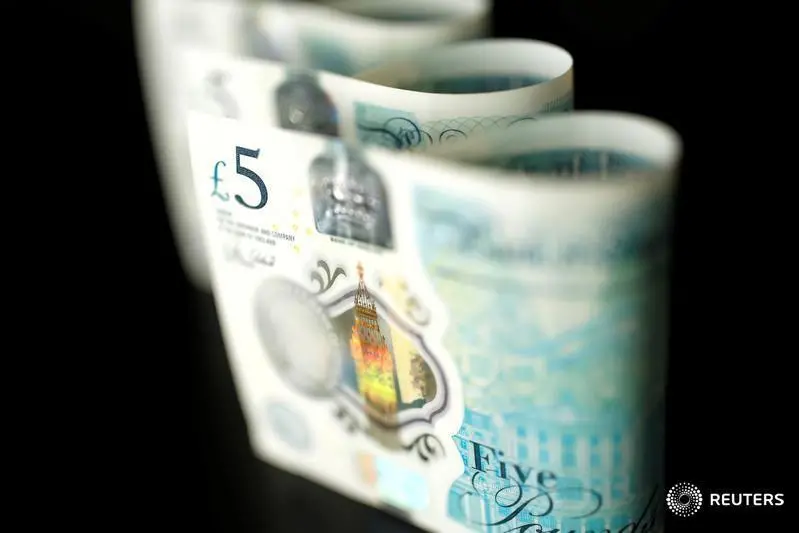PHOTO
LONDON - Sterling slumped against the U.S. dollar, hitting a new two-year low on Tuesday as markets focused on safe-haven currencies after another surge in European gas price reignited recession fears.
Economists said the risks of Europe backsliding into a recession were growing after a big jump in natural gas prices in both Europe and in Britain looked set to push inflation even higher.
The pound fell 1.4% against a strengthening dollar to $1.1930, its lowest level since March 2020, as the U.S. market reopened after a holiday on Monday.
Against other safe-haven currencies like the Japanese yen, sterling shed 1.2% to 162.2 yen, while against the Swiss franc, sterling weakened 0.7% to 1.1554.
The Bank of England said on Tuesday that the economic outlook for Britain and the world had darkened and told banks to ramp up capital buffers to ensure they can weather the storm.
It also said it will conduct an in-depth analysis to enhance surveillance of "opaque" commodity markets after Russia's invasion of Ukraine left the central bank without a full picture of risks and vulnerabilities.
"The pound is at clear risk of further losses given a weak economy and what we think are overextended BoE hike wagers," said Shaun Osborne, Chief FX strategist at Scotiabank.
The BoE, trying to tackle soaring inflation without hurting the economy, has raised rates five times since December. Some market players expect a bigger increase of 50 basis points at the next meeting on Aug. 4.
Traders were looking for clues on the BoE's monetary policy plans. BoE Chief Economist Huw Pill will speak on Wednesday and fellow Monetary Policy Committee member Catherine Mann will speak on Thursday.
Brexit-related risks in relation to a possible suspension of the Northern Ireland protocol were also a focus.
The British parliament is considering a new law which would unilaterally change customs arrangements between Britain and Northern Ireland that were initially agreed as part of its exit deal from the European Union.
Against a weak euro, sterling edged up 0.16% to 85.93 pence, after briefly hitting its highest level of 85.43 pence against the single currency since June 17.
The euro, heavily impacted by the gas prices surge, slumped 1.55% to a two-decade low of $1.0254 against the dollar.
(Reporting by Joice Alves, Editing by Tomasz Janowski and Jane Merriman)





















